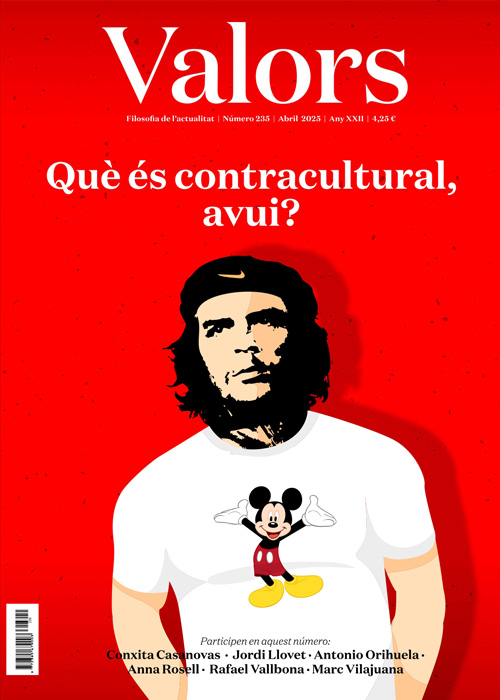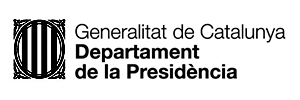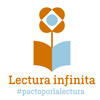Although she graduated from Ankara University’s Faculty of Law, Ece Temelkuran is a Turkish journalist, writer and activist. Twice she has been named the most read political columnist in Turkey. His articles have been published in international media such as The Guardian and Le Monde Diplomatique. He has published twelve books, including Cómo perder un país and Juntos (Anagram Argumentos).
The founding values of the European Union, according to the entity itself, are: human dignity, democracy, freedom, equality, the rule of law and human rights. What is the perception of the fulfillment of these rights from a non-European perspective?
There is some confusion. We are at a really interesting time to talk about this issue, just pay attention to the tragedy in Gaza. Personally, I am very interested in the concept of dignity. This should be the core value of today’s policies, but unfortunately it is not. Dignity is not the same for everyone. And I do not mean only for immigrants or refugees, but also for those Europeans who raise their voices for the human dignity of the Palestinians and who are not given the freedom to raise their concerns. This contradicts Europe’s pioneering role in the defense of human rights and as a moral leader in front of the rest of the world. After the Gaza tragedy, we have seen moral leadership move to the Global South, particularly South Africa, after bringing Israel before the International Court of Justice.
Is this a new situation?
No. We are at a historic moment and Europe is showing that it is losing its pretensions to become a moral leader. And it has not been an instant loss but a gradual one. It all started with the invasion of Iraq. Since then, the values that underpinned the European Union have been deteriorating. Gaza is the ‘grand finale’. Anyway, I know that in several cities in Europe, there have been demonstrations and protests against this immorality.
Does this mean that we should distinguish Europe from its institutions? Is Europe the European Union?
Europe is a concept that goes much further. When we talk about Europe, we also talk about Mozart or Rosa Luxemburg or the First International, Karl Marx, Hannah Arendt… But when we talk about Europe today, in current policies, we mean the European Union and its leaders. And it is a tragedy that, in so-called mature democracies, citizens cannot change the decisions of the decision-makers. Many Europeans feel powerless because their will is not changing the policies around Gaza. And, all together, it will have very important effects in the future.
In what way has the concept of otherness (the idea we have of the other based on the European standard) influenced immigration policies? Is this the clearest example of the hypocrisy of European values?
The issue of immigration is an absurd but worrying reality. Europe needs immigrants. All European countries need immigrants in order to maintain the economic system. However, after the refugee crisis, specifically during the war in Syria, we have seen how extreme right parties in all countries has used immigration as an instrumental tool that promotes racism and xenophobic narratives. It will not be surprising that in the next European elections the extreme right will be present in the European Parliament as never before. And it’s scary. Europe – and Germany in particular – has lost the culture of historical memory that it promised after the ‘never again’ in reference to the Holocaust. And this is related to fascism. We are wrong if we think that fascism is all about military uniforms and funny mustaches. Fascism is fear. When fear is present, we must be sure that it will be followed by an authoritarian regime with fascist implementations.
Do you think that Europe today is in a dilemma: to strengthen itself or to isolate itself?
Europe has already made a decision, although it is not very visible in the big cosmopolitan cities. Europe, like Donald Trump, is putting limits on the Union through Hungary to Croatia and Greece. Having said that, it is also true that I can understand that the European community is afraid of losing its home to the arrival of foreigners. It’s a very archaic thought that is deeply ingrained, but I can come to understand it. However, the only way to solve this is for Europe to find a humane way to dignify the politics of emotions. I think that European policy should focus on this management of fear.
What do you think about the fact that Turkey has not yet been accepted as a member country of the European Union, after decades of negotiations, while there are others who have succeeded and much faster?
This is a long and boring story. I remember that, when I was at university, around 1990, we had a subject called “European Union” and it was essential to do it, which I don’t think today’s students do. My generation grew up with positive thinking and ideology regarding Turkey’s integration into the European Union. However, both the Turkish Government and the European Union failed in this process. (…)
This interview is one of the eight appering in edition 225 of ‘Valors’, monthly magazine in catalan, based on Barcelona. You can read all the interview and other articles on this link.







